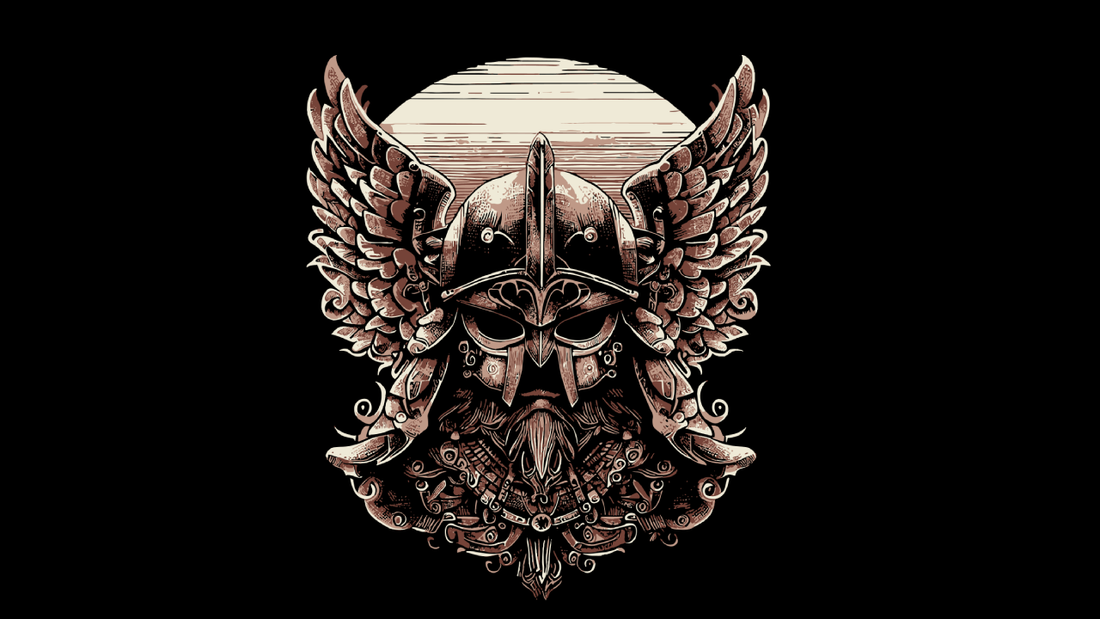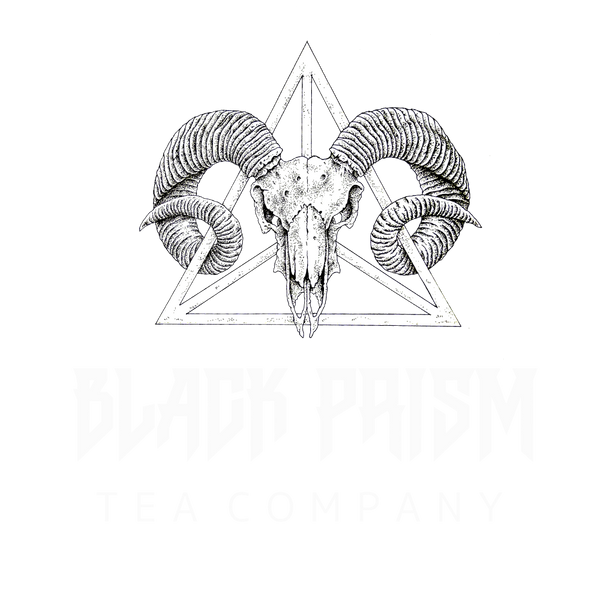"Often, for undaunted courage, fate spares the man it has not already marked."
Potent yet dependable, our Saxon Dawn English Breakfast Tea takes inspiration from England’s earliest archetypal hero: the warrior king, Beowulf. A story kept alive through generations of Anglo-Saxon oral tradition, and breathing still between the pages of a manuscript that has survived a millenia, Beowulf is a tale of courage, greed, and the death that awaits us all.
Proclaimed the greatest warrior of the northern lands after slaying two monstrous creatures of darkness, Beowulf is crowned but not content. The pagan king has a long and prosperous reign; yet he yearns to prove himself in mortal combat once again.
One biting winter evening, a ragged traveller comes knocking at the castle gates. The man is filthy, his clothes in tatters, but he carries a dazzling golden cup inlaid with shimmering rubies and emeralds, diamonds and sapphires. He tells the king where it was found: seeking shelter, the traveller had entered an ancient barrow which continued to the earth’s depths and opened into a cavernous chamber pregnant with hoards of buried treasure.
The man did not linger, for curled about the towering piles of precious relics and chests of silver, gold, and jewels of every hue, was the colossal, quivering form of a sleeping flame dragon.
Beowulf knows the dragon will wake raging in the knowledge of the missing golden cup. He knows the dragon will wreak vengeance. He knows also that this is his chance - not only to reclaim the treasures stolen from his forefathers, but a final fitting test of his strength and his valour.
The pagan king has grown old. His fame and status has not thwarted the ravages of time; the old man has slowed. But he is canny, and determined.
As Beowulf intuits, the flame dragon awakens blazing, and immediately tears to the stronghold of the northern lands, drawn by the presence of the missing cup.Trees and homesteads are exposed to the brunt of its wrath, left blackened and smouldering in the dragon’s wake. Beowulf and his men seize the cup, and lure the beast back to its subterranean lair.
It is here that the great pagan king finally meets his match. He delivers blow after blow, but each thrust of his sword clashes with the dragon’s steely scales, not the vulnerable soft patches of underbelly he aims for. Beowulf’s heavy iron shield protects him from the licks of red flame, the slashes of razor-edged claws, and the engulfing putrid stench of the dragon’s breath. But it obscures his vision, and the dragon seizes its chance. With a jerk of its enormous head, the dragon latches onto Beowulf’s neck, sinking its venomous jaws into his flesh.
One final act of bravery sees Beowulf, stoic in his agony, take advantage of the distracted dragon: sweeping his sword skyward, the king catches the dragon’s neck in a chink between two scales, and drives the blade through to the other side. The severed head of the flame dragon crashes to the ground, landing beside the collapsed and bloody form of the pagan king.
Many people mourn Beowulf’s passing. All of the treasure that has been guarded jealously for so long is brought out and laid to rest underneath Beowulf’s pyre. A procession circles the burning pyre until dawn, when all that’s left is ash and the beginnings of a new era.
The Saxon king's heroic demise reminds us to tackle each new dawn with courage but also humility. Our tea is suffused with safflower petals - ruby-red, blood-red, a vivid symbol of both the treasures and the dangers life has in store for us.

